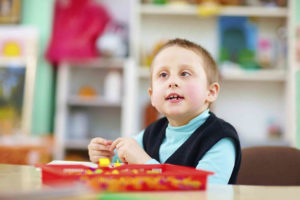 Whether your child is learning to build self-regulation skills or needs a way to control stimming behaviors, a coping skills toolbox could be an excellent resource for them. Especially in stressful times, having something prepared for your child that can help them feel safe and able to decompress is a valuable way to help them learn that they can appreciate being themselves. If you have never heard of a coping skills toolbox, then here is more information about what it is and how you can make one at home.
Whether your child is learning to build self-regulation skills or needs a way to control stimming behaviors, a coping skills toolbox could be an excellent resource for them. Especially in stressful times, having something prepared for your child that can help them feel safe and able to decompress is a valuable way to help them learn that they can appreciate being themselves. If you have never heard of a coping skills toolbox, then here is more information about what it is and how you can make one at home.
Comforting Items
Many times, if a child has a sensory processing disorder or autism, they might receive too much or not stimulation from their environment. That is why a good coping skills toolbox should have something that will bring comfort to their senses. For example, you can include a recording of their favorite music, a favorite blanket, some essential oils for a good smell, and mints for a nice taste. If you can find items that are specific to what your child likes, that will be a big help.
Healthy Distraction
Another part of a coping skills toolbox is providing a means of distraction if your child is upset. If your child has a favorite storybook, they can read or some coloring pages; then it will give them a moment to take their mind off of what might be upsetting them. Small puzzles or puzzle books that have word searches, crosswords, or sudoku are also a great way to unwind while also exercising the brain.
Emotional Mindfulness
Learning about emotions is an important skill for children, whether in managing their emotions or understanding others. There are many charts and games that can help practice emotional awareness. And you can get similar resources to help with mindfulness, which is the ability to focus on a present moment instead of worrying about the past or future.
The Connections Therapy Center
The Connections Therapy Center serves families of children and adolescents with disabilities and special needs. We are a team of experts in the fields of pediatric speech, occupational therapy, speech-language pathology, and behavioral sciences. As a team, we offer intensive hands-on therapy for children and adolescents, as well as informative and useful resources for families. If you are interested in learning more about what we can do to help your family, visit us online or give us a call at (301) 577-4333. Want to get more information on how to help your child thrive? Follow us on Facebook, Twitter, LinkedIn, and Pinterest.
